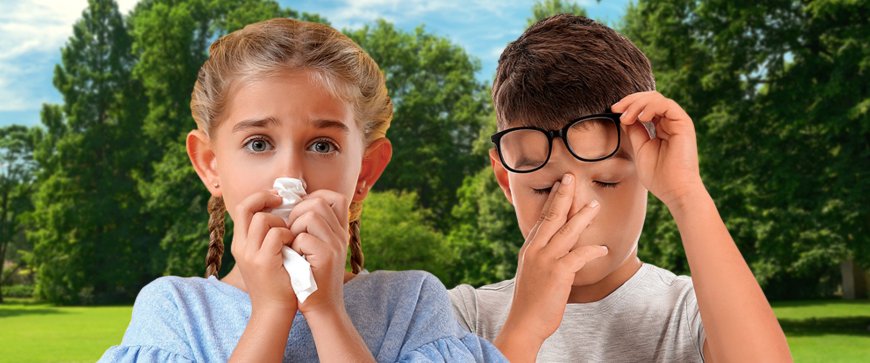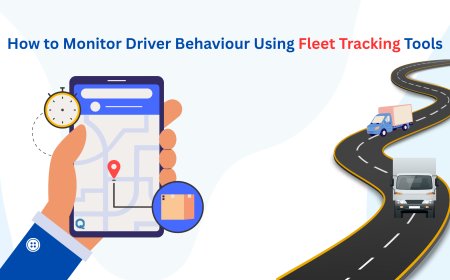From Dust to Pollen: What an Environmental Allergy Test Can Reveal
Explore how an environmental allergy test can reveal hidden triggers like pollen, dust, and pet dander. Learn how Fallon Family Medicine helps diagnose and manage your allergies for a clearer, healthier life.

Environmental allergies are a big problem for a lot of people because they make them feel bad and mess up their daily lives. Allergens, like pollen in the spring, dust mites in the fall, and pet hair all year long, can cause a wide range of symptoms. But how can we be sure of what's hurting us? Thats where an environmental allergy test comes in. At Fallon Family Medicine, we help individuals identify the specific triggers of their environmental allergy symptoms through comprehensive testing, providing the necessary tools to manage and alleviate the discomfort.
What Are Environmental Allergies?
Environmental allergies are allergic reactions caused by things in the air, like pollen, dust mites, mold, and pet hair. These allergens are often found in the environment and can cause a wide range of symptoms, from light ones like sneezing and stuffy eyes to more serious ones like asthma or skin rashes. Understanding the environmental allergies symptoms is essential in identifying the right treatment options.
Common environmental allergy symptoms include:
- Sneezing
- Runny or stuffy nose
- Itchy or watery eyes
- Coughing or wheezing
- Skin rashes or hives
- Fatigue
These symptoms may seem like a bother to some, but for others, they can really lower the quality of their life. So, it's very important to get tested for these allergies because it helps people understand their sensitivities and find better ways to deal with them.
How Does an Environmental Allergy Test Work?
An environmental allergy test is a diagnostic tool used to identify specific allergens that may be causing symptoms. Skin tests and blood tests are the two main ways to find out if someone is allergic to the surroundings.
- Skin Prick Test (SPT):
This is one of the most common forms of environmental allergy testing. A tiny prick is used to put a small amount of allergen into the skin for this test. The skin's response is watched, and if it gets red or swells up, it means the person is allergic to that drug. The test is quick and can help find out if someone is allergic to many things, like mold, pollen, dust mites, pet hair, and more. - Blood Test:
A blood test checks how many specific antibodies (IgE) are in the blood. When the immune system responds to a toxin, these antibodies are made. People who may have skin problems or who would rather not have skin tests can benefit from this test.
Why Is an Environmental Allergy Test Important?
An environmental allergy test makes it clear which allergens are making your symptoms worse. If you know exactly what you're allergic to, you can take the right steps to avoid it and better control your symptoms.
For instance, if you test positive for pollen, your doctor might tell you to wear a pollen allergy mask when pollen counts are high at certain times of the year. If dust mites are to blame, your allergist may tell you how to clean differently and possibly prescribe medicine to help control your symptoms. An environmental allergy test can often also tell you if allergy shots, also known as immunotherapy, might be a good way to treat your condition.
Understanding Specific Allergens: Common Triggers Revealed by Testing
One of the main reasons people get an outdoor allergy test is to find out which allergens are making their symptoms worse. These are some of the most common toxins found in environmental allergy tests:
1. Pollen:
Many people are allergic to pollen, which comes from grasses, weeds, and trees. This is especially true in the spring and fall. Pollen allergies can make people sneeze, have a runny nose, and have itchy eyes. Winter allergies can also be caused by pollen from evergreen trees, which comes out in the winter. It's important to know what kind of pollen is making you sick if you have pollen allergy symptoms because treatments may be different. Also, a lot of people look for pollen allergy shots near me because they help with long-term relief through treatment.
2. Dust Mites:
Microscopic creatures called dust mites like warm, damp places to live, like beds, rugs, and upholstered furniture. Their waste is a strong allergen that can make you sneeze, cough, and have stuffy noses. Environmental allergy tests can help you figure out if you're allergic to dust mites and give you advice on how to reduce your exposure, like using allergen-proof mattress covers and cleaning your home often.
3. Mold:
Another outdoor allergy that can be very uncomfortable is mold spores. Mold grows a lot in damp places like bathrooms, kitchens, and basements. Mold allergies can make you sneeze, have stuffy noses, and get spots on your skin. Environmental allergy testingcan help you figure out which germs might be making you sick so you can avoid them as much as possible.
4. Pet Dander:
People who are allergic to animals, especially cats and dogs, often react badly to pet hair. People who don't have pets can still bring animal dander into your home. An environmental allergy test can tell you if you're allergic to certain animals. This lets you make smart choices about how to deal with your allergy, like keeping pets out of certain places or using HEPA air filters.
5. Cockroaches:
Cockroaches are a major natural problem in some places. Their body parts, saliva, and feces can cause allergic responses that can make you sneeze, stuffy nose, and have other more serious symptoms. Testing can help you figure out if bugs are making your symptoms worse.
Pollen Allergy Testing - What to Expect?
You might want to look into a pollen allergy test near me if you have trouble with pollen allergies. This test will help find out whether the pollen is from plants, trees, or weeds and what kind of pollen is making you sick. If you know what kind of pollen you're allergic to, you can better control your symptoms when pollen counts are high. You may also be given medicine or told to change things in your surroundings, like staying inside on days with a lot of pollen, wearing a pollen allergy mask, or closing the windows during allergy season.
Infant Pollen Allergies - Can They Be Tested?
Even babies can get pollen allergies, but they might not be tested for them until they are older. Symptoms of infant pollen allergiesin babies can cause them to be cranky, sneeze, and have red eyes. A pediatric allergist is the best person to talk to if you think your baby is allergic to pollen or other environmental allergens. They might suggest safe ways to test your baby and give you advice on how to help your baby deal with their symptoms.
Treatment Options for Environmental Allergies:
Once environmental allergy testing has found your allergens, you can choose from a number of treatments to help control your symptoms:
1- Medications:
People with environmental allergies symptomsoften take antihistamines, decongestants, and nasal medicines to control their symptoms. If you have allergies, these medicines can help ease coughing, stuffy noses, and other symptoms.
2- Allergy Shots (Immunotherapy):
If your allergies are really bad and medicines don't help; allergy shots might be a good idea. These shots make your immune system less sensitive to certain allergens over time, which gives you long-lasting comfort. A lot of people look for pollen allergy shots near me to help them deal with their seasonal allergens better.
3- Environmental Control:
Getting rid of external allergens is a key part of easing symptoms. Getting rid of dust mites in your home, using air filters, and staying inside when pollen counts are high are all good ways to limit your exposure to triggers.
4- Pollen Allergy Mask:
Wearing a pollen allergy mask can help keep you safe during times of high pollen counts. Pollen particles can't get into your nose and mouth through these masks, so allergy symptoms are lessened.
Conclusion - The Importance of Environmental Allergy Testing:
Finding out what makes your environmental allergy symptoms happen is the first thing that you can do to control and ease them. We offer full environmental allergy testing at Fallon Family Medicine to help you figure out which allergens are causing your health problems. Whether it's pet dander, pollen, dust mites, mold, or pollen, we can help you feel better by giving you personalized care and effective treatment choices. If your allergy problems won't go away, call Fallon Family Medicine to make an appointment for a review. Today is the first day you can take the first step toward better health.
Managing the signs of outdoor allergies can be a lot easier if you get the right tests, treatment, and changes to your lifestyle. We're here to help you all the way and beyond!





















![Top 11 Real Estate Mobile App Developers in Riyadh, Saudi Arabia [2025 Edition]](https://www.philadelphialivenews.com/uploads/images/202506/image_430x256_68621a9e48997.jpg)






















